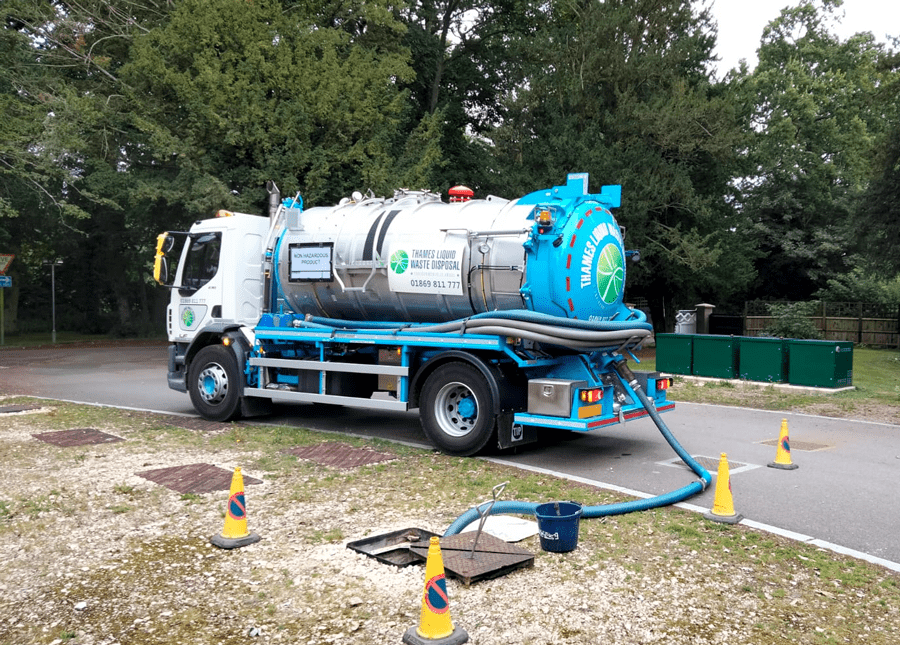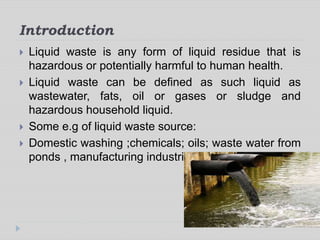Reclaim Waste for Beginners
Reclaim Waste for Beginners
Blog Article
More About Reclaim Waste
Table of ContentsUnknown Facts About Reclaim WasteSome Known Facts About Reclaim Waste.7 Easy Facts About Reclaim Waste DescribedReclaim Waste - An OverviewNot known Incorrect Statements About Reclaim Waste
Check out the kinds, events, and forms of fluid waste. Residential sewage waste describes the waste and products from a household sewage-disposal tank. This kind of waste is produced by humans in homes, schools, and other buildings. This only includes septic tanks that have a drainpipe field. The correct management and disposal of residential sewage waste require liquid waste to be transferred to a sewage therapy plant where the correct methods and equipment are related to purify and get rid of waste.
Commercial waste typically includes prospective hazards, such as combustible materials or a mix of liquid and solid waste items, and requires an advanced and thorough disposal process. The disposal of commercial waste generally involves the purification of waste before transportation to guarantee secure and correct disposal. Hazardous waste is created from by-products and drainage of industrial processes and manufacturing.
This type of waste can not use the exact same sewer administration transportation or procedures as septic or industrial fluids. The hazardous waste management process calls for the evaluation and screening of fluid waste before it goes through the disposal procedure (liquid waste removal melbourne). Runoff waste is the liquid waste that comes from overflow and excess stormwater in very booming areas or cities
Runoff waste can trigger contamination and flooding if not managed effectively. Find out more concerning sewage system cleaning and waste management. Making sure correct waste management can prevent catastrophes and minimize ecological damage. Both people in domestic setups and experts in commercial or production industries can take advantage of comprehending the procedures and guidelines of liquid waste administration.
Fascination About Reclaim Waste
Contact PROS Solutions today to discover our waste monitoring and disposal services and the correct means to look after the fluid waste you create.
(https://medium.com/@leonaube33101/about)Do you understand what happens to your water when you end, purge the bathroom or drain pipes the cleaning equipment? No? Well, it deserves knowing. This supposed 'wastewater' is not only an important source however, after therapy, will certainly be released to our land, rivers or the sea. Used water from toilets, showers, baths, kitchen sinks, laundries and industrial processes is called wastewater.

water used to cool down equipment or clean plant and tools). Stormwater, a type of wastewater, is runoff that streams from farming and urban locations best site such as roofing systems, parks, gardens, roadways, courses and seamless gutters right into stormwater drains pipes, after rain. Stormwater flows untreated directly to local creeks or rivers, at some point reaching the sea.
Unknown Facts About Reclaim Waste
In Queensland, most wastewater is treated at sewage therapy plants. Wastewater is moved from residential or industrial sites through a system of sewers and pump stations, called sewage reticulation, to a sewer therapy plant. Neighborhood governments develop, preserve and operate most sewage therapy plants. Operators are licensed under the Environmental Management Act 1994 to discharge treated wastewater at an acceptable environmental standard into waterways.
The Division of Natural Resources suggests city governments about handling, operating and keeping sewage systems and therapy plants. In unsewered locations, local federal governments might need homeowners to install private or family sewage treatment systems to deal with domestic wastewater from toilets, cooking areas, shower rooms and washings. The Division of Natural Resources authorizes making use of family systems when they are shown to be effective.
In some brand-new neighborhoods, therapy of some stormwater to get rid of litter, sand and crushed rock has actually begun making use of gross contaminant catches. Wastewater therapy occurs in 4 stages: Eliminates solid issue.
Wastewater then moves into huge storage tanks where solids settle and are gotten rid of as sludge. Oil and residue are skimmed from the surface area. Makes use of little living organisms knows as micro-organisms to break down and get rid of staying liquified wastes and great bits. Micro-organisms and wastes are included in the sludge. Removes nitrogen and phosphorus nutrients that might cause algal blossoms in our waterways and intimidate marine life.
Getting The Reclaim Waste To Work
Nutrient removal is not readily available at all sewer treatment plants because it needs pricey specialized tools. Clear fluid effluent created after therapy may still consist of disease-causing micro-organisms - liquid waste removal.

Many wastewater moves into the sewerage system. Under the Act, local governments carry out authorizations and licences for ecologically relevant activities (ERAs) involving wastewater launches that could have a regional influence.
Reclaim Waste Fundamentals Explained
Or else, samples are considered laboratory analysis. Frequently several examinations are required to develop the degrees of each of the different toxins such as oils, hefty metals and chemicals in water. Tracking offers factual info about water quality and can confirm that licence problems are being satisfied. The details gotten with monitoring gives the basis for making water quality choices.
Report this page